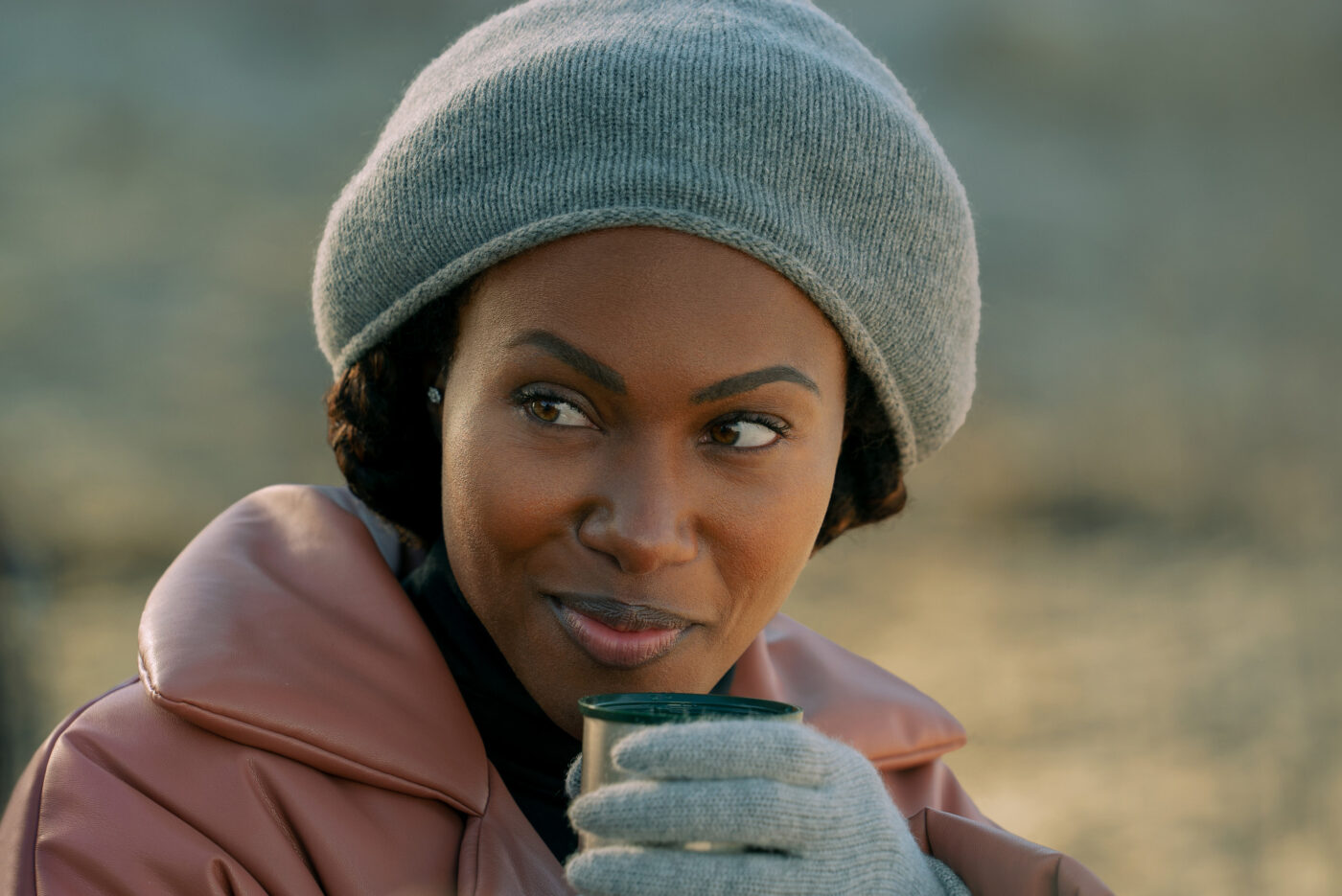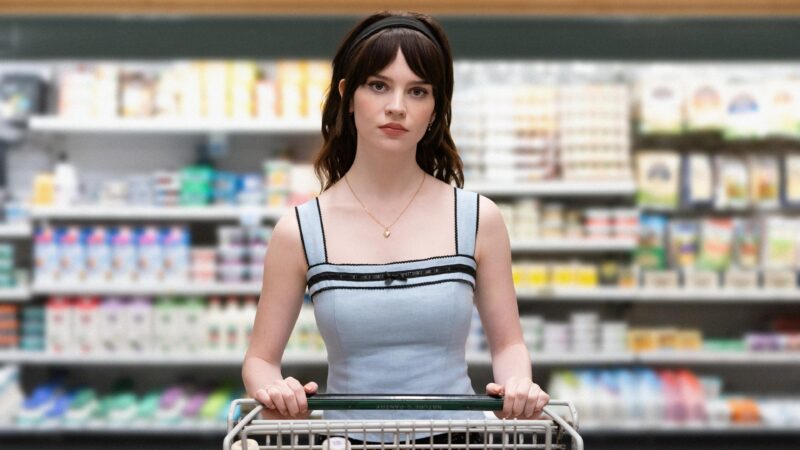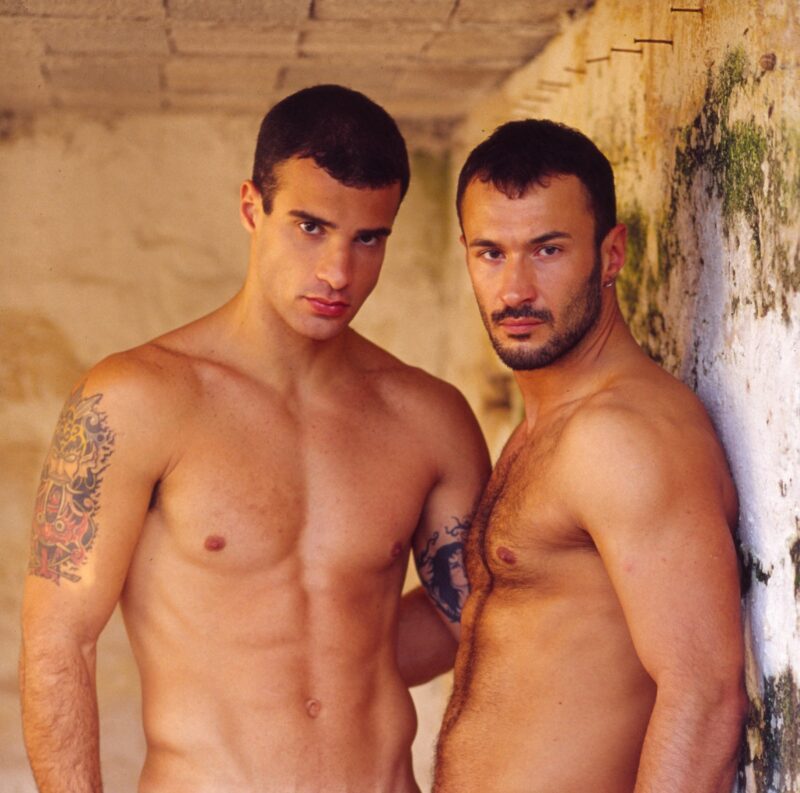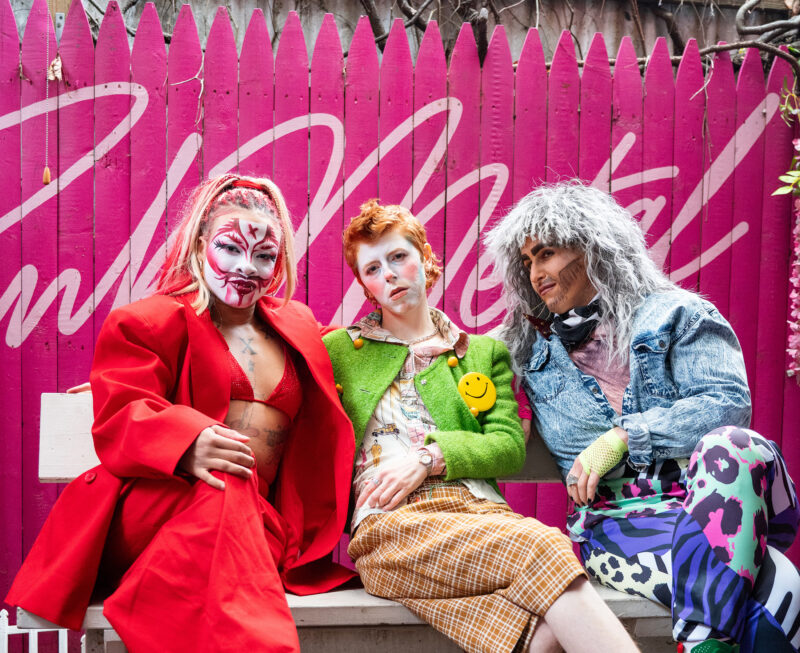In Three Women, the book, her character is painted white, but in the TV series she is young, rich and black and lives in a palatial home in Martha’s Vineyard. If the casting caused strong reactions, Wise’ performance quieted them all. When we meet for our interview, DeWanda Wise feels altogether different from Sloane, except for that cool confidence.
“That’s the side effect of just me being me,” she shares. “And not knowing any better and not having been raised to like code switch, or regard anyone as more or less or anything,” she explains. “So, the way that I moved through the world and moved through spaces, there was always a feeling like I am supposed to be here.” This ability to stay rooted in self is central to her magical ability to tap into her roles. The self-assurance with which she does it is inspiring for women –like me– who find that quality… elusive.
The actress agrees. “I think there are a number of elements at play, politically and otherwise, that benefit from our division. Capitalism benefits from our division and our insecurity. Consumerism benefits, politics benefits. There are all these systems at play to make us feel isolated and like we are not a part of the whole. And our sexual appetite or lack thereof is one of many, many, many things that are so often weaponized.
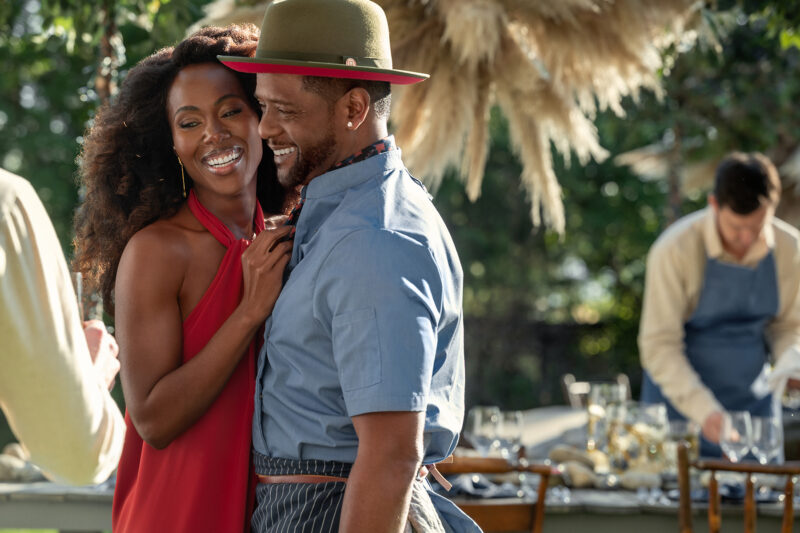
‘Three Women’s DeWanda Wise & Blair Underwood courtesy of Starz.
This theme is writ large on screen where you see Sloane and the other characters navigating the weight of love and lust. The audience celebrates the scenes where love and lust empower women and weeps when those same sentiments lead them to their lowest. Each narrative is an intoxicating emotional loop –especially Sloane’s story.
“I am only interested in playing characters who I need to know more about,” says Wise. “I recognize that Sloan is one of the first representations we have seen of a black woman with an eating disorder. (And) so much of it has to do with growing up in systems where our beauty standards look a certain way. Anyone watching Three Women can see Sloane is grappling with systems that are much larger than the microcosm of who she is or where she is in Martha’s Vineyard.”
As an actress, digging into such divergent experiences is not something she takes lightly. “Even if the characters don’t have my experience, they have my soul, they have my body.” They have this readiness for adventure that carried Wise from her early years as a high achieving valedictorian in Maryland to a star student at NYU Tisch School of Arts. After years in the industry, appearing on shows like Law & Order:SVU, The Good Wife and Boardwalk Empire, the hard work paid off with a starring role in Spike Lee’s Netflix series She’s Gotta Have It in 2017. Since then, she’s been a consistent presence from the small screen to the silver screen –at each turn emanating an essence of a woman fully comfortable in her skin. Something all women want, and, according to Wise, all can achieve.
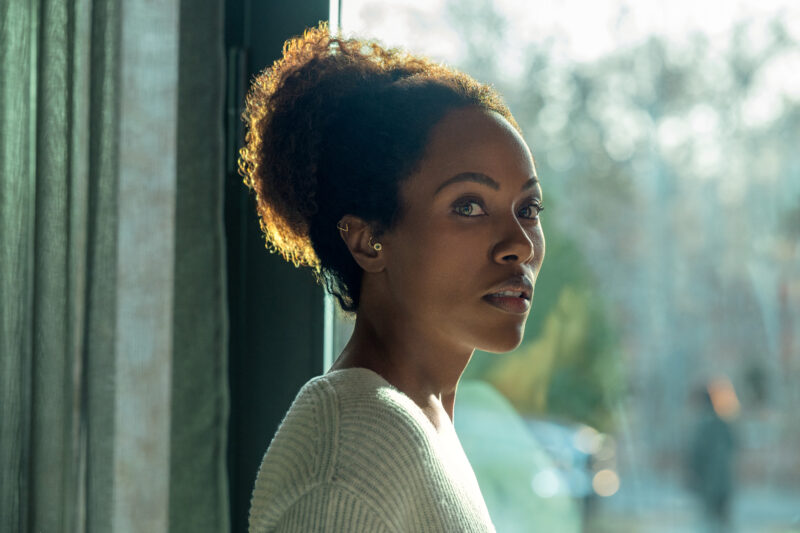
‘Three Women’s DeWanda Wise courtesy of Starz.
“The more you practice being authentically yourself,” says Wise, “No matter what, no matter where you are, no matter who you are with, the more you can align yourself with the people and places that are a reflection of who you authentically are. The more that energy will resonate and emanate off of you. That’s literally all it is.”
This authenticity beams on screen with Sloane and the other characters, lending to the core of the success of Three Women. From the lead actors to supporting cast like Blair Underwood, John Patrick Amedori, Austin Stowell, and Blair Redford, the skilled and nuanced performances add another layer to the magic that’s sparked such a warm reception. But it’s fashion –especially Sloane’s– that takes a star turn in each story. “You see the wardrobe?” asks Wise, as we both squeal with glee. “Every costume was like $12,000. You could feel the money –she is immensely high maintenance. Her nails were always done and I would joke about it when we were filming because they are so impractical. Those talons were like armor.”
For Sloane, a woman looking for control, her wardrobe’s luxurious and commanding vibe tells the story. Same for Lia’s transformation from repressed housewife to siren, as embodied in that sultry red dress. Same for Maggie’s emotional trauma which is echoed in her succession of casual denims, tees, and hoodies that feel just like high school. They are all different, but their style, story and soul feel so familiar.
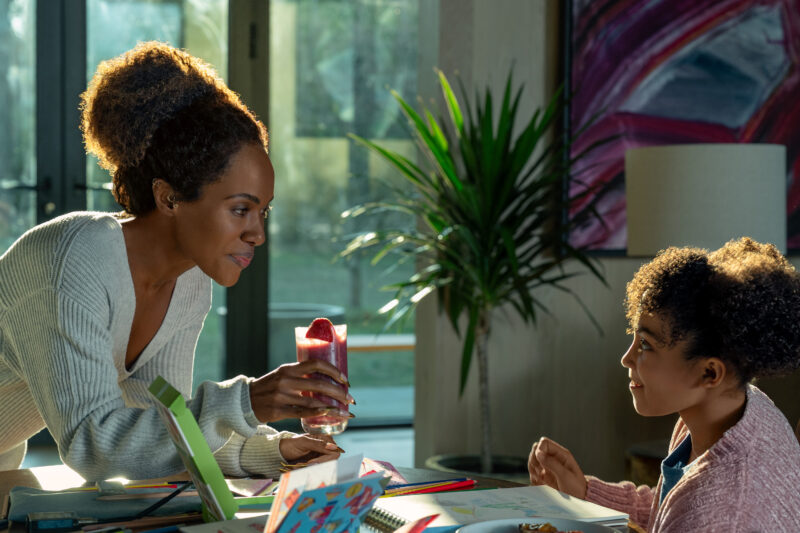
‘Three Women’s DeWanda Wise courtesy of Starz.
“The show is for everyone,” Wise acknowledges. “I am thankful that it resonates with people who are not women – but it is unabashedly and unquestionably for women speaking to each other.” That’s clear in one of the most powerful scenes in the series which transmutes a slur that, more often than not, cis gendered women are labeled with: slut. In one of the few scenes where we see all the women together, they unite in a chant that feels like a prayer. “I’m not a slut.” Reflecting on the scene, Wise says, “I get chills.”
“That phrase in particular ‘being a slut, being a hoe’ you know? Even just having that kind of question about you. I’ve definitely been questioned because I love these roles where women are desired and get to express that desire and that sexual appetite.”
In her real life she reconciles it by knowing her truth and resting in it. “The reconciliation is knowing myself really well, loving myself well, and being surrounded by people who know me and love me well. So then, the dichotomy of who I actually am in real life and the characters I play isn’t the mind fuck it could be if I wasn’t truly known and loved.” Poetically, the same holds true for the character she plays on screen. Ultimately, the revelation for Sloane, and for us, is that the only label that matters is the one you give yourself.
Three Women is streaming now on Starz.

